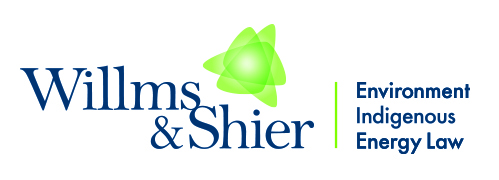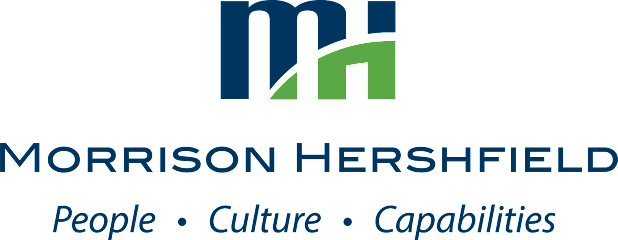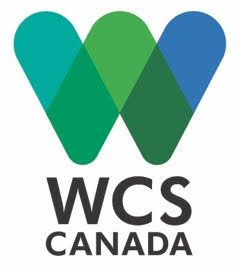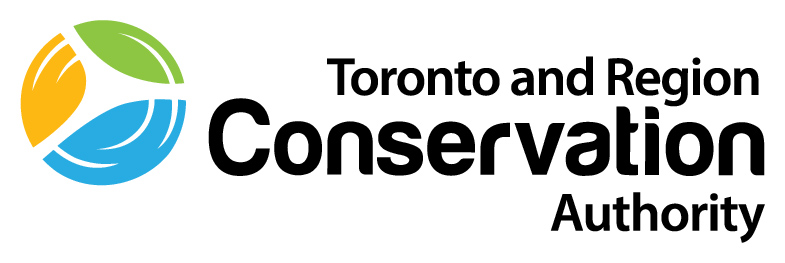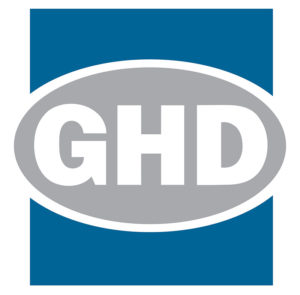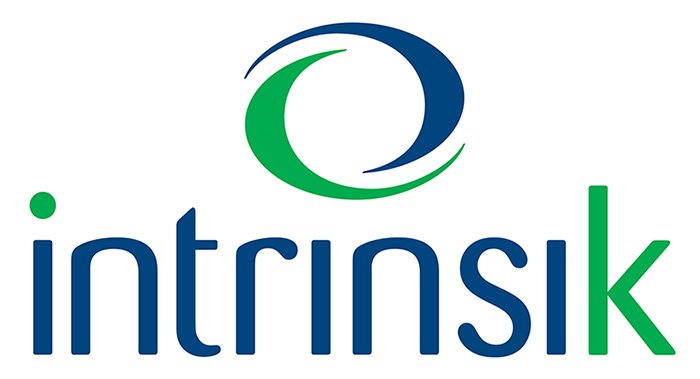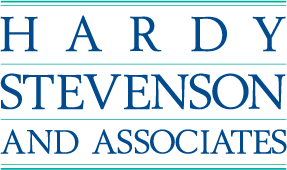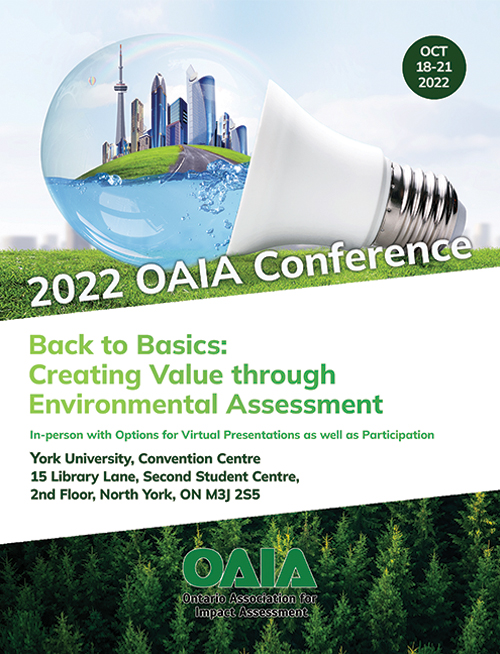Back to Basics: Creating Value through Environmental Assessment
DATE: October 19th – 21st, 2022
LOCATION: York University, Convention Centre, 2nd floor at the Second Student Centre
OVERVIEW:
This year’s conference theme explores the value and importance of impact assessment in Ontario by exploring the fundamentals of good impact assessment practice. A diversity of perspectives, case studies and best practices will highlight how environmental assessment planning creates value for governments, proponents, regulators, NGOs, Indigenous Peoples, and the general public who are affected by project proposals. At this conference, presenters will contemplate how to get better decisions that minimize the risks with construction and operation; create more certainty for the future permitting and regulatory phase that follows; and how host communities of projects gain benefits (both financial and otherwise) than would otherwise not be achievable through a regulatory licensing approach. In other words, we will examine the costs and benefits of a well-conducted assessment process.
Topics include:
- Explore how efforts to modernize the Environmental Assessment Act (EAA) in Ontario as well as the federal Impact Assessment Act promote environmental planning processes that in turn create value for proponents, the general public and other stakeholders, regulators and Indigenous Peoples.
- Highlight case studies where technical studies as part of impact assessments contribute to broader sustainability such as Corporate Social Responsibility and the Social License to Operate. For example, how are social, health, and Indigenous-led assessments in Ontario contributing to broader objectives?
- Explore best practices and case studies for stakeholder engagement: how do we address misinformation in the context of EA? What role does joint fact-finding play in combating misinformation and creating meaningful engagement?
- Explore how the identification and evaluation of alternatives contributes to corporate, political, and societal goals including the public interest, economic development, climate change, and sustainability.
- Explore how Western science and Indigenous Knowledge Systems are being used in impact assessment including to address alternatives assessment, baseline data gathering, and the assessment of effects.
- Explore how adaptive management is being used to manage the uncertainty and lack of consensus around the assessment of impacts. How can Indigenous communities, the general public, and stakeholders be engaged as adaptive management approaches are used to manage impacts post-approval?
- Explore how cumulative effects, climate change, and sustainability are being assessed. Highlight case studies that exemplify best practices for cumulative effects assessment and how climate change and sustainability are being addressed in projects in Ontario.
This conference has a wide appeal to those working in different disciplines and sectors and is broad enough to engage with a range of practitioners, Indigenous Peoples, academics, and others with the goal of improving impact assessment practice.
YouTube Playlist (Sessions 1 - 8)
2022 Conference Presentations
Official Conference Sponsors
Thank you to the following sponsors of the 2022 Conference:
